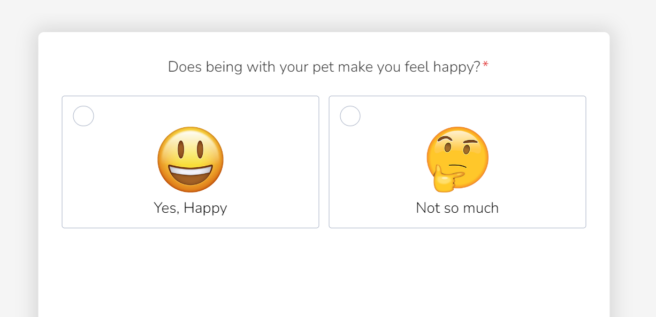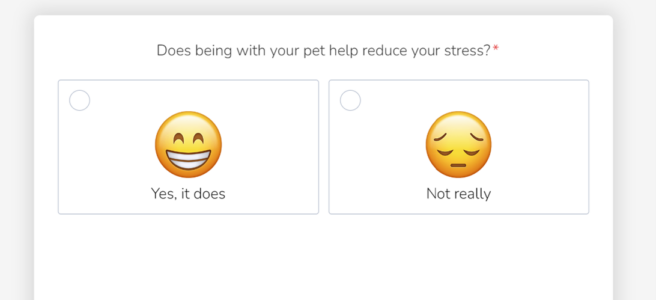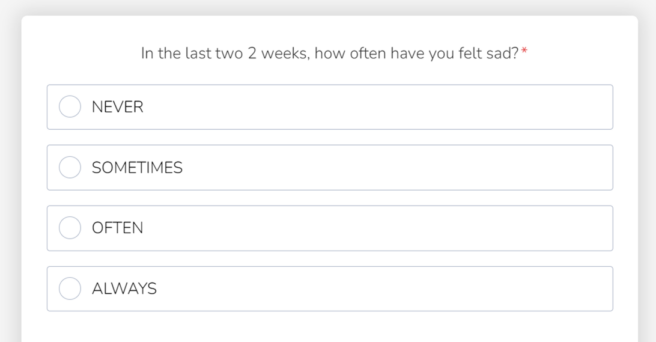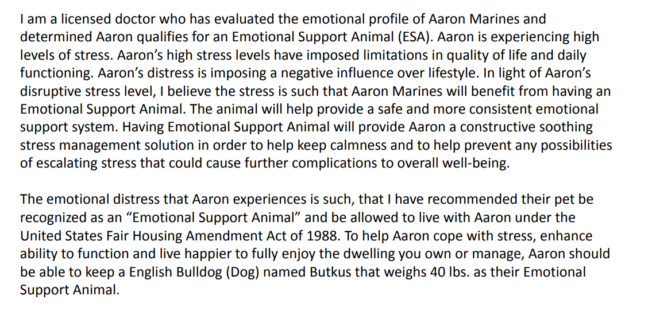I Have an (Imaginary) Emotional Support Dog – It Only Took Five Minutes and $99

I have written many times about service dogs and emotional support animals. Associations and Landlords are flooded with requests for service or support animals, reasonable accommodations, ESAs, PSAs, ADA and the FHA. It seems like any time someone has a question about a pet, a Landlord or Association needs to consult an attorney. So, I decided to “apply” for an emotional support animal online. I wanted to better understand the process and what happened at the end of my application.
First, a quick reminder of the law. Under the Fair Housing Act, a “housing provider” (which includes Landlords and Condominium and Planned Community or Homeowners Associations) must provide “reasonable accommodations” to permit someone with a disability to enjoy housing on an equal footing with people who do not have a disability. Sometimes, a person requires a “support animal” to assist with their disability. A “support animal” is just any animal. It does not need to be trained to do anything, be registered or wear a vest. If a resident has a letter from a physical or mental health professional that says the person has a disability and would benefit from a support animal, Landlords and Associations are required to permit those animals.
I know that it is easy for anyone to get a letter prescribing an emotional support animal. But I wanted to, once and for all, understand just how easy it was. So, I Googled “Emotional Support Animal.” Tens of millions of hits came up. I clicked on the first sponsored ad. I took their quiz. The quiz was about a dozen questions. Here is the first one, directly from the website:

The next one:

Then there were a bunch just like this:

I answered them truthfully. I said that I sometimes feel sad, or worried, that I have occasionally lost sleep or have been irritated. I said that being with my dog, a 40-pound English Bulldog named “Butkus” makes me feel happy and less stressed. This is a lie because I do not have a dog. In my defense, if I DID HAVE an English Bulldog named Butkus, that would be really cool.
When I completed a dozen or so questions just like these, the Website asked me about my pets. This site limited the choices to dogs and/or cats. This is where I made up my bulldog. (Butkus was the name of the dog that Adrian got Rocky. I thought it was an English Bulldog, but it was actually an English Mastiff.) Then I hit “Complete” and guess what? I was qualified to have an Emotional Support Animal. For just $99, I could get the doctor’s letter that told the world about my disability and how Butkus helped. For another $89, I could have gotten a couple more items, including a “Service Animal” vest for Butkus. I decided not to spend the money. Because it is hard to get an imaginary bulldog to wear a red vest.
Here is part of my letter:

This is very similar to letters that my clients show me from residents. Sometimes the problem is anxiety or depression, but the gist of the letter is just about the same as mine.
Whenever a Landlord or an Association gets a letter like this, they have to permit the emotional support animal. You cannot ask additional questions about the disability, or decide on your own whether the resident really needs a support animal. The ESA is not subject to limits on pets. We like to tell clients that an ESA is not a pet, it is a prescription. The ESA is not subject to weight or breed limitations. You cannot charge a pet fee or deposit for an ESA.
This does not mean that the Landlord or Association cannot regulate the support animal’s behavior. Rules such as picking up after the animal, having them on a leash, not allowing them to be tied out unattended, and not allowing excessive noise are still enforceable against an Emotional Support Animal just like any other animal.
It is hard to write a blog like this without seeming judgmental. That is not my intent. Many people have legitimate emotional issues and having a dog or cat helps them through the day. Most of us want our neighbors to be happy, and if an animal helps, I am all for it. Also, philosophically, why should my neighbor care if I have lovable, slobbery bulldog? Now if I don’t pick up after him, or if he barks all night, then my neighbor has a reason to complain. But those are the kinds of rules that all animals have to follow, whether they are support animals or “just” pets.
The reason that I went through this exercise is to help Landlords and Associations understand how that doctor’s letter gets to them. When you get this letter, there is no way to tell if the resident is really suffering, or just had five minutes and $99 to spare. Landlords and Associations need to take letters like this at face value. My letter, and every other one like it, has all of the legal requirements of the Fair Housing Act to permit an Emotional Support Animal. This is the law, and there is no sense being angry about it, or trying to find ways around it.
